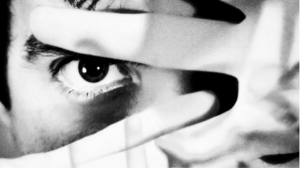Are You Suffering From Imposter Syndrome?
- At October 04, 2016
- By rbadmin
- In Blog
 0
0
“The trouble with the world is that the stupid are cocksure and the intelligent are full of doubt.” Bertrand Russell
Do you feel in over your head? Is fear of failure making you weak in the knees? Are you afraid of being “found out,” that the recent success you’ve enjoyed is based purely on happenstance and that there’s no chance you’ll win the luck lottery twice? Do you dread that any day now a man will show up at your front door and, staring at a clipboard, inform you that there’s been a mistake, that your professional credentials you never deserved in the first place are finally being revoked?
If that’s you, you probably have Imposter Syndrome, a condition identified by psychologists Pauline Clance and Suzanne Imes in 1978. High achieving individuals are especially prone to it. “The more people think you’re really great,” prize-winning author David Foster Wallace said in the outstanding film The End of the Tour, “the bigger the fear of being a fraud is.”
It’s not quote a mental disorder (it isn’t serious and it requires no therapy), but it affects as many as 70 percent of us at one point or another, and it can lead to anxiety and depression if we don’t come to grips with it.
The good news is that, contrary to how it makes you feel, imposter syndrome means you’re on the way up. You’re either embarking on an exciting new career path or you’ve recently been promoted. You’re outside your comfort zone, but you’re on your way to creating a new one.
Think about lobsters. As these creatures grow, they burst their shells and are temporarily vulnerable and exposed. Over time, though, they create new shells and feel safe and protected again. Their growth is always inwardly driven, rendering their former shells too small to contain them.
That’s you. If you have imposter syndrome, you’re probably growing. (No, you are not getting fatter.) You’re either growing taller or more expansive. Your resume, no doubt, looks better than it did even a short time ago. And the longer you stay where you are, the more comfortable you’ll feel in your new skin until you grow and expand again and begin the process anew.
Bear in mind that the feeling is most likely temporary, though it isn’t likely to switch off all at once. Rather, it will gradually diminish in stages.
It also helps to remember that the problem is almost universal.
“I have written eleven books,” Maya Angelou once said, “but each time I think, ‘uh oh, they’re going to find out now. I’ve run a game on everybody, and they’re going to find me out.’” “I still think people will find out that I’m really not very talented,” actress Michelle Pfeifer said. “I’m really not very good. It’s all been a big sham.” “The first problem of any kind of even limited success,” author Neil Gaiman wrote, “is the unshakable conviction that you are getting away with something, and that any moment now they will discover you. It’…something my wife Amanda christened the Fraud Police.” Supreme Court Justice Sonia Sotomayor has said she feels the same way sometimes.
If those four people—and those are just four famous examples—are susceptible to repeated bouts of Imposter Syndrome despite being so spectacularly accomplished, the feeling clearly has no bearing on reality whatsoever. It’s just a feeling. An illusion. It can be safely dismissed. You can tell yourself that the feeling of being a fraud is itself fraudulent.
You know who never suffers from imposter syndrome? Those who don’t care. People who aren’t ambitious, who refuse to grow, who are content to coast through life without stretching themselves or trying anything new.
We all feel like we don’t know what we’re doing sometimes, but there will always be someone who feels this more intensely than we do. (Imagine what it must feel like to be inaugurated as President of the United States. It’s not like the White House begins with a job training program.)
Unless you’re truly a fraud, though—unless you’re prepping for surgery without any medical training, or working as an undercover agent inside a terrorist organization—just give this feeling the middle finger and get on with your day. Each day you finish your work, even when you do it imperfectly, counts as one more piece of evidence that you are, in fact, precisely where you’re supposed to be.

